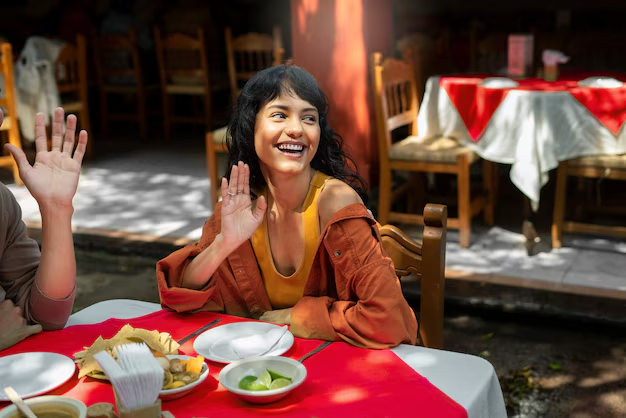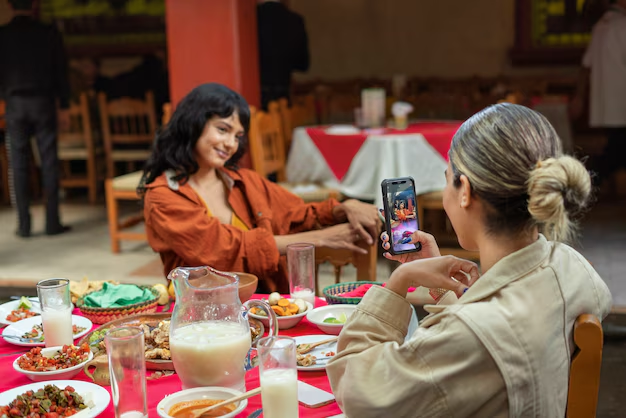Traveling is one of the most enriching experiences that allows you to explore new destinations, meet people from different cultures, and enjoy unique foods. To make the most of your journey, immersing yourself in the local culture and cuisine is key. It’s not just about visiting popular tourist spots, but about understanding the essence of the place through its traditions, people, and, of course, its food. Here’s how you can maximize your travel experience with local culture and cuisine.
1. Research the Local Culture Before You Go
To truly immerse yourself in the local culture, it’s important to learn about the customs, traditions, and history of the destination before you arrive. Whether it’s understanding religious practices, festivals, or how locals interact, this knowledge will make you more respectful and appreciative of the culture. Understanding cultural norms will also help you avoid unintentional faux pas.
2. Engage with Locals
One of the best ways to learn about a place is by interacting with the people who live there. Whether through guided tours, attending local events, or just striking up a conversation with a friendly local, these interactions offer invaluable insights. Locals can provide recommendations for hidden gems that aren’t found in guidebooks, and you might even get invited to a family dinner or celebration!
3. Explore Local Markets and Street Food
Local markets are a treasure trove of cultural experiences. Here, you can find unique handmade goods, local crafts, and most importantly, authentic street food. Street food is often the heart of a region’s cuisine, offering dishes that locals eat daily. Try the local delicacies—whether it’s a bowl of pho in Vietnam, a taco in Mexico, or sushi in Japan—to savor the true flavors of the destination.
4. Take a Cooking Class
Food is a window into the soul of a culture, and there’s no better way to understand it than by learning how to cook local dishes. Many destinations offer cooking classes where you can learn how to prepare traditional meals using local ingredients. These classes often include visits to local markets, giving you a hands-on experience of the culinary culture.
5. Attend Cultural Festivals

Festivals are a fantastic way to witness a culture in full swing. From music and dance to traditional ceremonies and religious celebrations, festivals offer an authentic glimpse into the heart of a destination. Plan your trip to coincide with a local festival to experience the energy, color, and vibrancy that come with it. Whether it’s the Rio Carnival in Brazil or Diwali in India, festivals often feature unique food, drinks, and cultural practices that you won’t find elsewhere.
6. Stay with Locals
Staying with locals, either through homestays, Airbnb, or guesthouses, can offer you a deeper connection to the culture. It’s not just about having a roof over your head, but about living as the locals do. Many hosts are eager to share their customs, cuisine, and traditions, enriching your travel experience.
7. Support Local Businesses
As you explore a new place, make an effort to support local businesses, from small family-owned restaurants to independent shops and tour guides. Not only does this contribute to the local economy, but it also allows you to experience the authenticity of the destination. The local businesses are often where you’ll find the true flavors and customs of the region.
8. Learn the Language
While you don’t need to be fluent, learning a few basic phrases in the local language can go a long way. Locals appreciate it when travelers make an effort to speak their language, and it opens up more opportunities for interaction. Learning words for common phrases like “please,” “thank you,” and “delicious” will enhance your experience and show respect for the culture.
9. Be Open and Adaptable
One of the most important things when traveling is to be open-minded. Every culture has its quirks and customs, and sometimes things may not go as planned. Be adaptable to new experiences, even if they challenge your comfort zone. Whether it’s trying new foods, participating in traditional ceremonies, or exploring off-the-beaten-path locations, your willingness to embrace the unfamiliar will make your travel experience far richer.
10. Respect the Culture
When you immerse yourself in a new culture, respect is key. Every culture has its own set of values and practices, and it’s important to approach them with an open heart and mind. Be mindful of local customs, especially in religious or sacred sites, and always ask for permission before taking photographs. Respecting the culture not only enriches your experience but ensures that you leave a positive impression on the locals.
Conclusion
Maximizing your travel experience is all about stepping beyond the tourist attractions and embracing the authentic culture and cuisine of the place you’re visiting. By learning about local traditions, engaging with locals, tasting traditional foods, and staying open to new experiences, you’ll create memories that go beyond the sights. Travel isn’t just about the places you see, but the connections you make and the cultures you discover.
Frequently Asked Questions
Q. How do I learn about a destination’s culture before visiting?
Research through books, blogs, documentaries, or conversations with people who have traveled to the destination. You can also explore online cultural resources or take virtual tours to familiarize yourself with the culture.
Q. How do I find authentic local food?
Ask locals for recommendations, visit street food markets, or join food tours. Avoid touristy restaurants and look for places where locals eat.
Q. Is it safe to try street food?
Yes, but it’s important to choose food stalls that appear busy, as high customer turnover ensures freshness. Also, ensure the food is properly cooked and served hot.
Q. How can I learn to cook local dishes while traveling?
Look for cooking classes offered by local chefs or cultural centers. Many tours include market visits, where you can shop for ingredients before cooking the dishes.
Q. What’s the best way to interact with locals?
Be respectful, learn a few words in the local language, and ask open-ended questions. People appreciate when travelers show interest in their culture.
